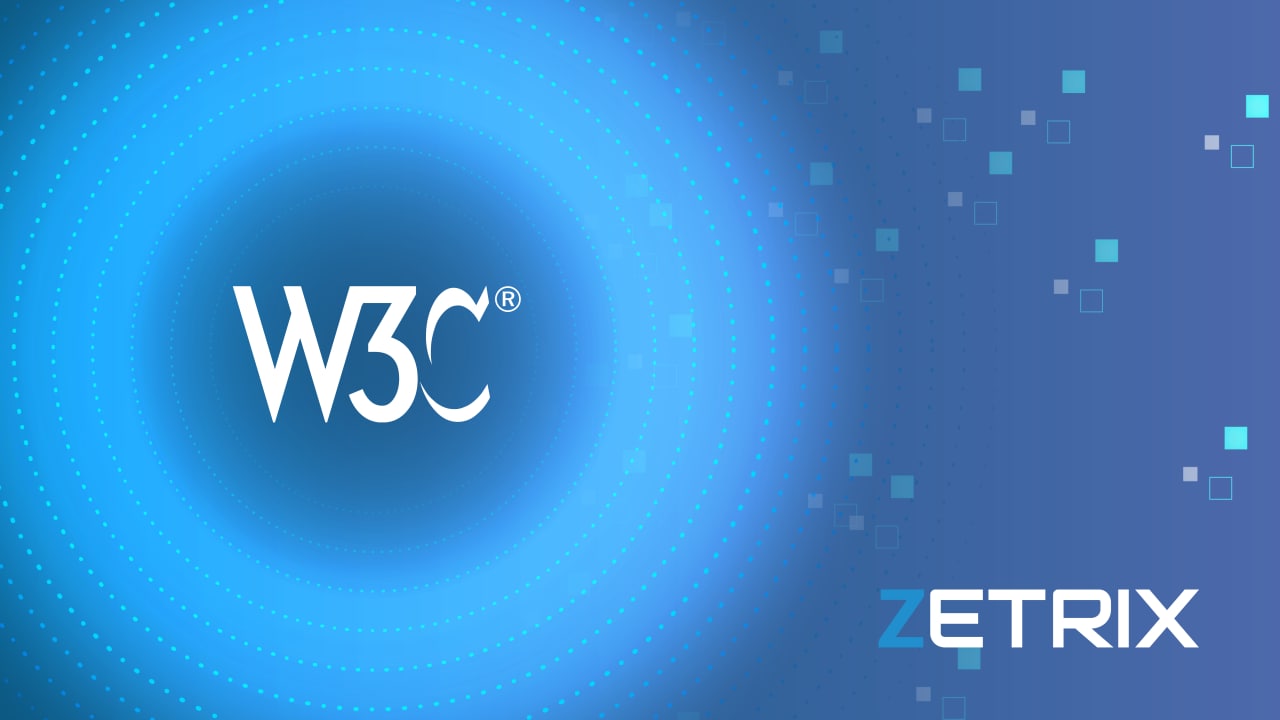
On Tuesday, the World Wide Web Consortium (W3C) announced that Decentralised Identifiers (DIDs) are now an official web standard. The revolutionary move allows a new type of verifiable identifier that will enable individuals and organisations to control their online information and relationships while also providing them with greater security and privacy.
The mobile phone industry has long adopted phone number portability, allowing individuals to take their numbers with them when switching carriers. Yet, today, most email and social network addresses are not owned by individuals and must be changed if the individual changes providers.
But with this new technological standard by the W3C, Decentralised Identifiers will allow individuals or organisations to control their on-chain identity fully, allowing portability between service providers and complete privacy. In addition, DIDs also have the unique property of enabling the controller to verify ownership of the DID using cryptography. This can allow any controller of a DID-individual, organisation, online community, or government-to engage in more trustworthy transactions online with no privacy invasion.
For individuals, DIDs put users back in control of their personal data, enabling forgery to be prevented, privacy to be honoured, and usability to be enhanced. Unlike typical federated identifiers, DIDs have been designed so that they may be decoupled from centralised registries, identity providers, and certificate authorities. While other parties might be used to help enable the discovery of information related to a DID, the design allows for the controller of a DID to prove control over it without requiring permission from any other party.
With the recent movement of blockchain technology, projects like Zetrix have already identified and built solutions surrounding the very problem that arises from the lack of identity sovereignty. Forward-thinking solutions such as Zetrix's "ZID" or "Zidentity" address blockchain transparency and security issues by allowing users to use blockchain-based identifiers or verifiable credentials for efficient and private cross-border transactions.
ZID recognises the Self-Sovereign Identity (SSI) standardisation as a decentralised identity solution. Because SSI uses encryption, users may manage their identities and communicate with other identities or users directly without disclosing any data or information to outside sources or providers.
Zetrix recently announced their partnership with Xinghuo BIF, the national blockchain of China that is supported by all levels of the Chinese government. Xinghuo BIF is already running at a scale that allows it to process 94 million identifiers daily, and ZID will act as the international extension of Xinghuo's on-chain signing service known as Spark.
With this partnership, the ZID service not only acts as a gateway for identity sovereignty within the Zetrix blockchain but also allows individuals and organisations that engage in global trade with China to transact within a secure environment. This sets up Xinguo-Zetrix to become one of the most active blockchain ecosystems globally.
ZID is just another addition to Zetrix's revolutionary new ecosystem, predominantly known for its Proof-of-Stake (PoS) blockchain, which facilitates smart contracts and delivers privacy. Its cryptographic infrastructure can be introduced to multiple industries, creating a more transparent and efficient process. Zetrix's network also has incredible scaling ability, handling 10,000 transactions per second.
Zetrix's Delegated Proof-of-Stake (DPos) mechanism is designed for implementing tech-based democracy using elections and voting processes to protect from centralisation. The Zetrix DPoS mechanism is implemented through smart contracts with a dynamic upgrade mechanism that adjusts to the difficulty level of validating node access as Zetrix's network expands. This provides vast benefits as Zetrix acts as the international supernode for the Xinghuo blockchain, facilitating international transactions. As an added measure, the consensus mechanism allows transactions to be validated before being added to the blockchain, and all validators are voted in via a contract.
The advent of DID technology is a massive move for the Web3 world, rectifying the lack of a built-in identity layer within Web2. Projects like Zetrix are further evidence of this, pioneering a new way forward with its solution. Furthermore, as blockchain technology approaches mass adoption by working with governmental bodies to build a holistic transaction environment, identity sovereignty is a crucial factor that will influence the efficiency and privacy factors of the ecosystem.
* This is a contributed article and this content does not necessarily represent the views of techtimes.com









